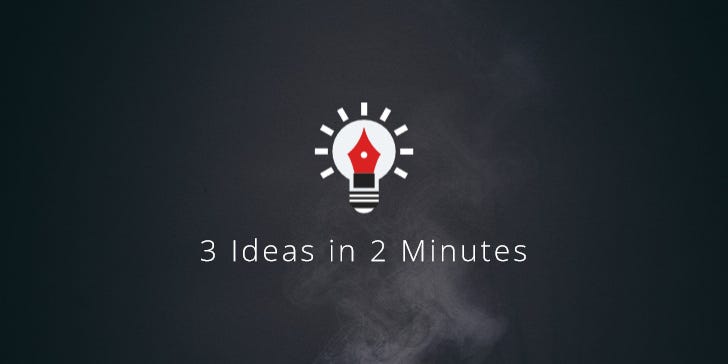#223: Stopping Decicions, This Will Do & the Illusion of Choice
3 Ideas in 2 Minutes on Making Purchase Decisions
I. Stopping Decisions
An often overlooked part in the making of purchase decisions is deciding when to make them. I mean, at what point do you stop comparing winter jackets and just buy that green one your wife showed you? You need a Stopping Decision.
A Stopping Decision is that moment you decide you’ve gathered enough information or explored enough angles to move forward. It’s the point where the mental digging shifts from useful to excessive.
Stop too early, and you risk acting on dangerous half-knowledge; missing out on the best winter jacket you didn’t even know existed. Stop too late and you end up with paralysis by analysis; not buying anything at all after getting lost in the intricacies of winter jacket design pros and cons. Both extremes weaken good reasoning.
The art lies in striking a balance between recognising when the return on more thinking is too small to matter. A solid stopping decision is less about perfection and more about sufficiency: This will do.
II. This Will Do
This Will Do also happens to be the ethos of Muji, the Japanese brand known for its minimalist no-brand goods. They say:
[W]e do not make objects to entice responses of strong affinity, like, “This is what I really want” or, “I must have this.” MUJI’s goal is to give customers a rational satisfaction, expressed not with, “This is what I really want” but with “This will do.”
“This is what I really want” expresses both faint egoism and discord, while “This will do” expresses conciliatory reasoning. In fact, it may even incorporate resignation and a little dissatisfaction.
MUJI’s goal is to sweep away that slight dissatisfaction, and raise the level of the response, “This will do” to one filled with clarity and confidence.
III. Illusion of Choice
So, is it possible to make conscious purchase decisions? “Probably not,” says marketing contrarian and author of elaborately named books, Rory Sutherland:
Our conscious mind tries hard to preserve the illusion that it deliberately chose every action you have ever taken; in reality, in many of these decisions it was a bystander at best, and much of the time it did not even notice the decision being made.
―Rory Sutherland, Alchemy: The Dark Art and Curious Science of Creating Magic in Brands, Business, and Life
🐘
Have a great week,
Chris
themindcollection.com

